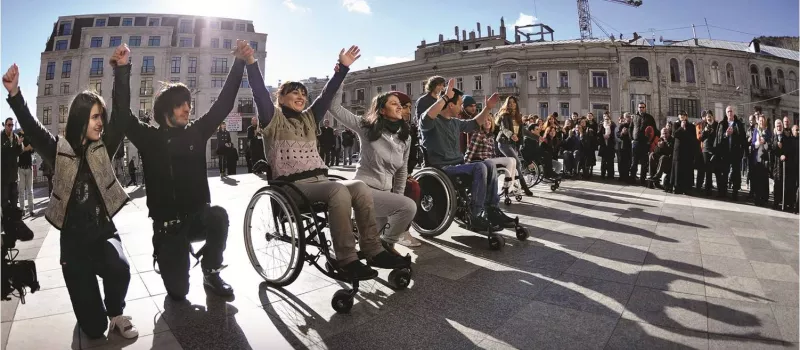
The 2016 and 2017 Learning Agendas included 20 Learning Questions across five themes: Participation and Inclusion, Transparency and Accountability, Human Rights, DRG Integration, and Theories of Democratic Change. The DRG Center formulated the DRG Learning Agendas through a consultative process with internal Theme Teams and USAID field staff. The Center created action plans for each question and a Learning Agenda Advisory Group to oversee annual updates to the agendas. The Center then funded evidence reviews along with research and evaluation activities to evidence gaps.
USAID reviewed past research supported by the DRG Center and assessed the degree to which the questions from the latest agendas were addressed (see Learning Overview). This process included a compilation and summary of research including ÿndings, conclusions, and recommendations (see Learning Agenda Rack-Up).
The 2016 and 2017 Learning Agendas included 20 Learning Questions across five themes: Participation and Inclusion, Transparency and Accountability, Human Rights, DRG Integration, and Theories of Democratic Change. The DRG Center formulated the DRG Learning Agendas through a consultative process with internal Theme Teams and USAID field staff. The Center created action plans for each question and a Learning Agenda Advisory Group to oversee annual updates to the agendas. The Center then funded evidence reviews along with research and evaluation activities to evidence gaps.
USAID reviewed past research supported by the DRG Center and assessed the degree to which the questions from the latest agendas were addressed (see Learning Overview). This process included a compilation and summary of research including ÿndings, conclusions, and recommendations (see Learning Agenda Rack-Up).
The Learning Agenda questions were informed by existing DRG research and evaluation efforts and were developed collaboratively by DRG Center Theme Teams and staff from USAID Washington and USAID Missions overseas as well as through consultations with academics and external experts. The current agenda is divided into three tracks—cross-cutting, process, and team—that each focus on a certain type of learning question. The cross-cutting track addresses questions related to topics, or themes, that apply to multiple DRG program areas (such as civil society and governance). The process track addresses questions on how we learn and apply evidence within the DRG sector.
|
Opening Up Democratic Spaces |
What are the most effective interventions focused on public institutions to reverse democratic backsliding and/or support greater democratization? For more information on the Opening Up Democratic Spaces, check out the infographic along with the Literature Review, Executive Summary of Case Study Report, and the Full Case Study report. |
|
Information Ecosystem |
What factors and dynamics foster -- and build resilience to -- the proliferation of disinformation, misinformation and/or malinformation? For more information on the Information Ecosystem research, check out the infographic along with the Literature Review and the Research Database. |
|
Anti-Corruption |
How should USAID foster anti-corruption reform in contexts where “political will” is weak? For more information on the Anti-Corruption Research, check out the infographic and full report. |
|
Integrating inclusion |
What donor-assisted interventions can we use to change entrenched norms holding individuals and groups such as youth, women and girls back from engaging politically and why? For more information, check out the Women's Political Party Leadership (WPPL) work, check out more here. |
|
Evidence in programming |
How do Missions integrate DRG evidence into programming and how can evidence use be supported? For more information, read the DRG Mission Use of Evidence (MUSE) study. |
-
Research
DRG 2016-17 Learning Agenda Overview
-
Article
2021 Annual Learning Forum
-
Article
2023 DRG Annual Learning Forum
-
Article
2022 Annual Learning Forum
-
Research
2021-23 DRG Learning Agenda Overview
